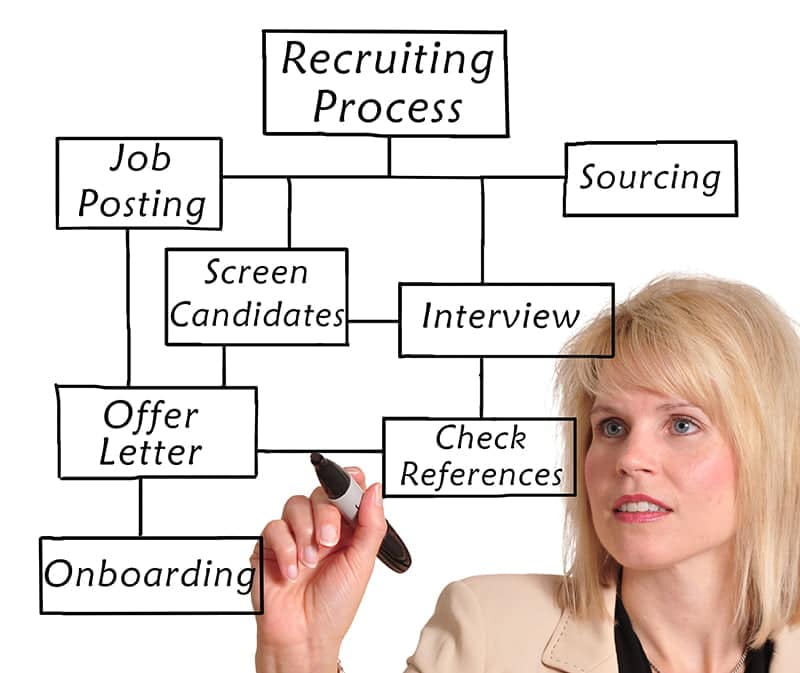Are you searching for your next position? While the need for a good job reference should be a “given”, many candidates take little time or effort to assure that their references are portraying them in the best possible light. Frequently, this oversight occurs because of incorrect assumptions about how references (and reference checking) work.
Table of Contents
ToggleHow do employers conduct references? What are former employers allowed to say? Are references working for, or against the job seeker?
Reference Checking Myth No. 1
Companies are not allowed to say anything negative about a former employee during a documented reference check.
The Truth: While many companies may have policies that dictate only title, dates of employment and eligibility for rehire can be discussed, reference persons frequently violate those rules in providing bad references about former employees despite company policies.
Think about the boss with whom you had philosophical differences…or the supervisor who sexually harassed you. Can that person be trusted to maintain a professional standard? In many cases the answer is no; approximately half of Allison & Taylor clients receive a bad reference, despite the fact that many companies have strict policies in place prohibiting negative references.
Reference Checking Myth No. 2
Former employers direct all reference checks to their Human Resources departments, and those people won’t say anything negative about me.
The Truth: Most Human Resources professionals will follow proper protocol during reference checks. However, in addition to WHAT is said, reference checkers also evaluate HOW something is said. In other words, they listen to tone of voice and note the HR staffer’s willingness to respond to their questions. Both are critical factors in reference checks – how will your employment be reflected in their responses?
Reference Checking Myth No. 3
It’s best to have my employment references listed on my resume and distribute them together.
The Truth: Your references should be treated carefully and with respect; you don’t need companies that may or may not have a real interest in hiring you pestering your employment references. Keep your references separate from your resume, and only provide them when requested. Better still, have a list of your references readily available (in the same format/font as your resume) to be given to a prospective employer. When offered (for example) at the conclusion of an interview – in a highly professional format – it can create a very proactive (and favorable) ending impression.
Reference Checking Myth No. 4
Once a company hires me, my job references really do not matter anymore.
The Truth: Not all companies finish background and/or reference checks before you are hired. Many employment agreements and contracts include a stipulation that says the employer can hire you with a 90-day probation period. During this time, they will not only evaluate your job performance but, in some instances, will do background and reference checks. During this time, if the results are unsatisfactory, they have the legal right to fire you.
Reference Checking Myth No. 5
I sued my former company and according to job reference laws, they are now not allowed to say anything.
The Truth: Job reference laws can be bypassed and may not entirely protect you. Under job reference laws your former employer may not be able to say anything definitive, but do not put it past them to carefully take a shot at you while still in accordance with the law.
As an example, a former boss or an HR staffer may say “Hold on a minute while I get the legal file to see what I am allowed to say about Mr. Smith.” Although not allowed to “divulge anything” as stated by job reference laws, they just indicated there were legal issues surrounding your employment. This implication can torpedo your job prospects.
Many people discover the error of their assumptions the hard way – by losing out on the perfect job because of reference issues. Check your own references before you provide them to employers to ensure you can address potential problems before they cost you the job.
For more information on reference checking, and what to do if a negative reference is impeding your chances for a new job, please visit www.AllisonTaylor.com.
Source PR Newswire
Summary:
Reference Checking Myths
Reference Checking Myth No. 1 Companies are not allowed to say anything negative about a former employee during a documented reference check. Reference Checking Myth No. 2 Former employers direct all reference checks to their Human Resources departments, and those people won’t say anything negative about me. Reference Checking Myth No. 3 It’s best to have my employment references listed on my resume and distribute them together. Reference Checking Myth No. 4 Once a company hires me, my job references really do not matter anymore. Reference Checking Myth No. 5 I sued my former company and according to job reference laws, they are now not allowed to say anything.”






